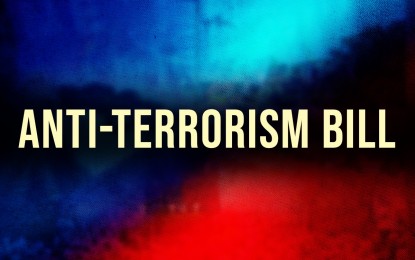
MANILA – Amendments on the Philippines Human Security Act (HSA), which have been incorporated in the Anti-Terrorism Bill (ATB), are necessary to address gaps in the country’s anti-money laundering and counter terrorism financing (AML/CTF) system.
These gaps were determined by a team from the Financial Action Task Force (FATF) that conducted the third mutual evaluation (ME) last year to check the county’s level of technical compliance on international AML/CTF standards and effectiveness of existing mechanisms on these, the Anti-Money Laundering Council (AMLC) said over the weekend.
AMLC earlier said the Mutual Evaluation Report (MER), which the FATF published in October 2019, raised the need to enact and implement amendments on HSA within 12 months to prevent the country from being included in the “gray list”, which the country was able to exit from in 2017 following the enactment of Republic Act (RA) 10927, which included casinos as among the covered institutions of the Anti-Money Laundering Council (AMLC).
Being in the “gray list” means a country has a deficient financial system that makes it prone to risks of money laundering and terrorist financing, among others.
AMLC said the push for this proposed law is needed despite the current coronavirus disease 2019 (Covid-19) pandemic because “time is ticking”.
It added that even as the observation period for the review process on the country’s AML/CTF system has been extended from October 2020 to February 2021 because of the pandemic, authorities must still ensure the institution of the ATB.
AMLC said “this observation period is the last opportunity for the Philippine competent authorities to address identified deficiencies in the MER to avoid gray-listing”.
“Consequently, the Philippines’ inclusion in the gray list will result to an additional layer of scrutiny from regulators and financial institutions, thereby increasing the cost of doing business; delaying the processing of transactions; and blocking the country’s road to an “A” credit rating. The pandemic is already adversely affecting our economy. It would be prudent to mitigate other risks and avoid problems gray-listing would further bring to our economy,” it said.
Lawmakers have approved the proposed ATB and the final copy of which has been transmitted to Malacanang last June 9 for the President’s signature.
Once signed into law, the ATB will replace RA 9372, otherwise known as the Human Security Act of 2007.
Under the proposed law, any person may be jailed for 12 years if they threaten to commit terrorism or propose terroristic acts.
Persons suspected of any terrorist act may be detained for 14 days without a warrant of arrest, and this period may be extended for 10 days.
Also, suspected terrorists may be placed under a 60-day police or military surveillance, with a 30-day allowable extension.
AMLC said ATB is needed because HSA “lacks provisions” that would make the Philippines compliant to UN Security Council Resolutions aimed at preventing the rise of foreign terrorist fighters.
It added ATB does not prevent people from exercising free of expression since Section 4 of the proposed law “does not include advocacy, protest, dissent, stoppage of work, industrial or mass action, and other similar exercises of civil and political rights, which are not intended to cause death, or serious physical harm to a person, to endanger a person’s life, or to create a serious risk to public safety”. (PNA)
